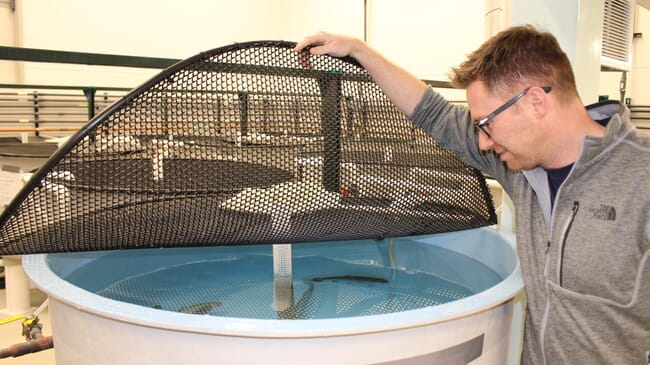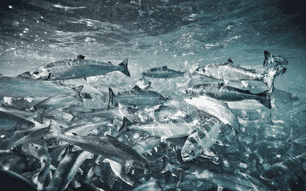
Fish species face multiple aquatic threats, which could mean serious problems for the aquaculture industry in the future.
The new Waterloo Aquatic Threats in Environmental Research (WATER) facility at the University of Waterloo aims to simulate and research aquatic stressors and threats so that we are better prepared to prevent current and future problems.
“Many environmental changes are impacting both wild and aquaculture fish,” said Paul Craig, a professor in the Department of Biology and one of the lead researchers in the new WATER facility. “Our new multimillion-dollar facility will allow researchers to bridge the gap between lab and fieldwork by studying the impact of climate-related stressors in a controlled environment.”
The WATER facility, which is one of the largest aquatic test facilities in Ontario, has the capability of studying a wide range of aquatic organisms, from Canadian cold-water fish to tropical fish and amphibians. The facility is also equipped to trace the multi-generational effects different environmental stresses may have on aquatic life over multiple lifespans.
New technologies, including a pathogen challenge area, will allow researchers to study the impact of disease agents and contaminants of concern on aquaculture, expose populations to controlled climate-related stressors like water temperature and oxygen saturation levels, and measure the effects of human-centric pollution such as wastewater on aquatic ecosystems.
The new WATER facility also prioritises sustainability by reducing water usage by 90 percent compared to the groundwater flow through system that was previously used in aquatic research at Waterloo.
“With the opening of the WATER facility, we are looking to expand our research areas and expertise, and invite researchers across Canada in areas water research and aquatic conservation to collaborate with us to carry out new and innovative research,” Craig said.




